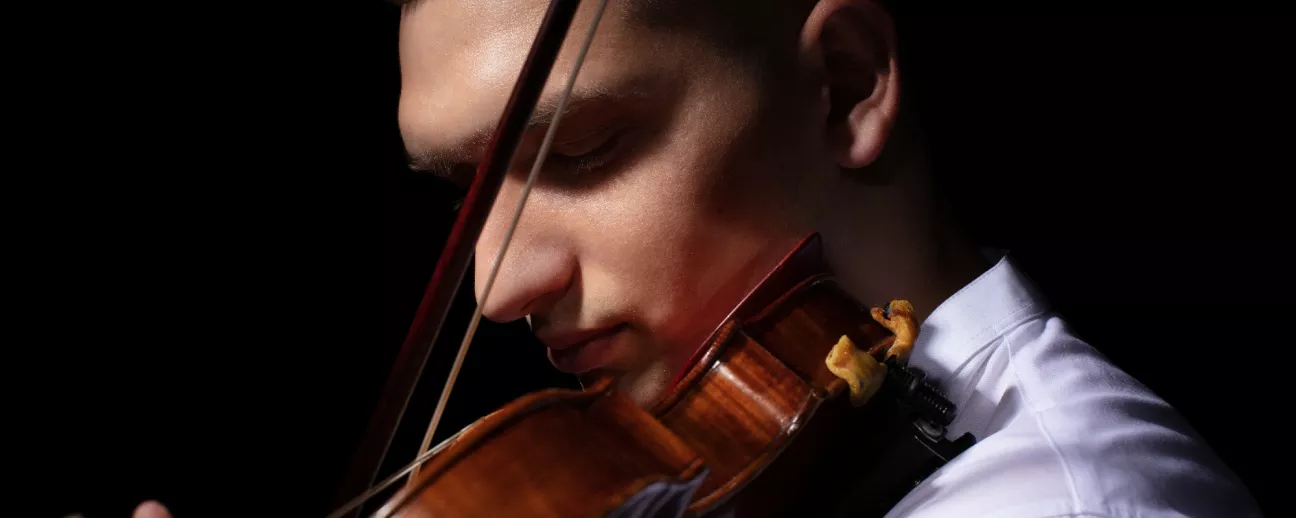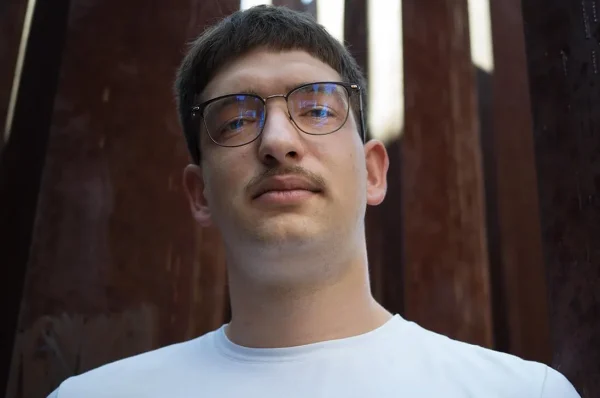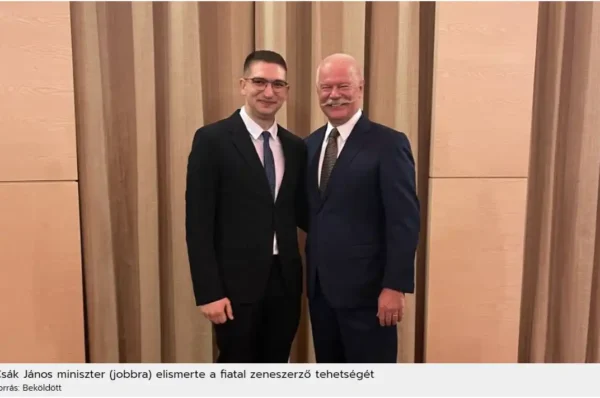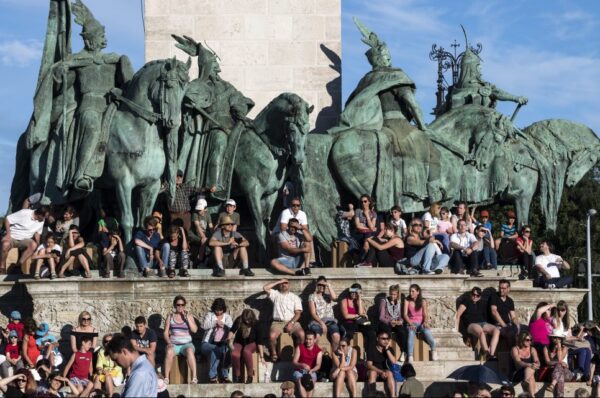The unsuccessful attempts to unify Pest, Buda and Óbuda, the era of the Monarchy, the time of the world wars, Trianon, the post-war years until today, the moods of the city are evoked by Oláh Patrik’s musical piece Fusion, which premiered on September 2nd at Hősök square.
According to the unanimous vote of the three-member jury of the Budapest Overture: Patrik Oláh’s Fusion was the winner of the joint composer competition of the Budapest Festival Orchestra and Budapest Capital City. The twenty-five-year-old composer, winner of the Junior Prima Prize, does not hide that it was a huge honor for him to listen to his piece performed by one of the world’s best orchestras.
I didn’t use contemporary melodies, I wanted to show the emotions of these eras in my music, which also contains authentic gypsy music motifs – says Patrik Oláh about the eight and a half minute work. – In the piece, which revolves around a five-note melody and the symphonic orchestra, four instruments play the main role: the piano, the harp. and the strikers.
I always compose in such a way that I see the performers and the location in front of me, so I write tailored to the person and the place. This happened in this case as well, and the BFZ played my work, born for Budapest’s one hundred and fiftieth birthday, even more perfectly than I had imagined.
He eagerly awaits the further fate of his piece, and is confident that one day it will also be heard in a concert hall, showing its new colors. By the way, this is not the first victory for Patrik Oláh, he was a first-year student at the Academy of Music when he shared first place at the 1st Budapest Beethoven Composer Competition.
After that, he was able to receive the Andor Neszlényi Award, which is awarded to the composer-student who created the most outstanding piece of music written for an acoustic instrument/instruments during the given academic year. He is the author of the first mass in the history of music, in Lovári, presented at the 2021 International Eucharistic Congress, also entitled: Le Devleske (To God). In the piece, he combines classical music, church music, and gypsy music, so that the work holds its place both in liturgical settings and in a concert hall. The rearranged version of the piece was also performed in Germany this summer.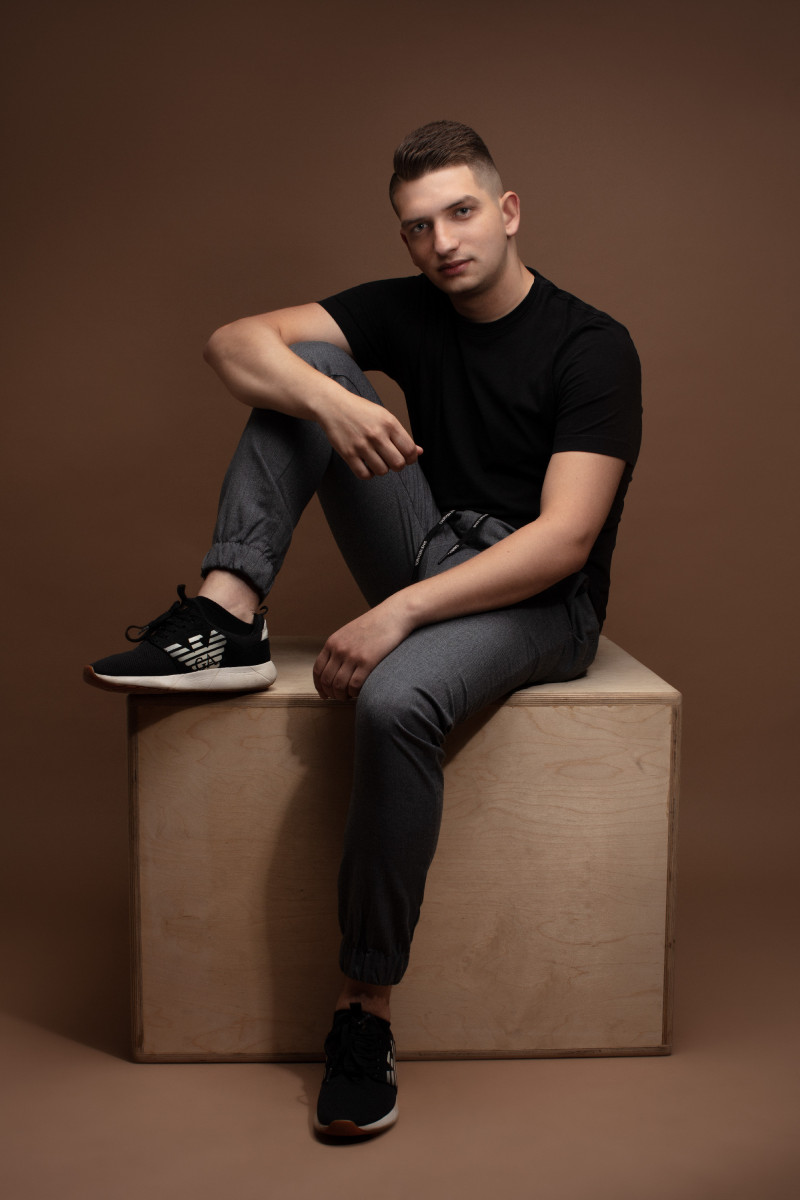
It is important that I can not only create in the genre of classical music – says Patrik Oláh
Photo: from the archives of Géza Oravecz/Oláh Patrik
The boy from Salgótarján started learning music as a second grader under the influence of his cousins. He was interested in the piano, but his parents recommended the violin, so he chose it at the local music school. Later, he didn’t miss the piano either, so he plays both instruments. He applied to the conservatory at the age of fourteen, that’s when he moved to Budapest. He soon fell in love with the city, and the Danube bank became his favorite place for walking, sitting and composing.
He still had the violin as his instrument when he wrote a string quartet quarterly, the work came second in the composers’ competition. The success of his play confirmed that he should turn to composing, which he had been interested in before.
At the Academy of Music, he finally graduated with a degree in composition. During his university years, he composed continuously, new and new works were created in response to tenders and invitations.
I can’t just write for the desk drawer – he says – if I start a piece to my liking, I won’t get through it in more than two minutes… It’s important for me to know for whom and in what location the work is being created. And even today, the first thing I hear in my head is the sound of the violin, the instrument that I think can best express emotions…
After graduation, he taught several subjects, transposition and score playing as a demonstrator at the Academy of Music, as well as composition to students who had not dealt with this before. However, the beginning of the academic year in September was already in Hamburg, partly thanks to the success of Fusion and the accompanying prize money, as it allows him to finance his life in Germany.
I am continuing my studies with the Erasmus program, but I am not studying traditional composition, but multimedia electronic composition. At the University of Hamburg, this subject has significant traditions, among my teachers is Alexander Schubert, the famous composer, which is why I decided to continue my studies here. I’ve always been very interested in electronic music composition and various music editing programs, but I haven’t managed to acquire sufficient knowledge in this field. I am at the beginning, it will take time for my first such work to be born. In the future, I would also like to deal with soundtracks. It is certain that I will stay in Hamburg throughout March, but I may continue in Germany after that.
In the spring, however, he will definitely return to Budapest, for the exam period, as he is still a student of the Ferenc Liszt Academy of Music.
He composes in addition to his studies in Hamburg, he has been asked to compose a piece for piano and cello, the presentation is planned for February, and he also writes a piece for tuba and piano, dedicated to Roland Szentpáli.
He is thinking about writing an opera in the Lovári language, but he believes that he will start when he can perform it within a realistic time… Typically, the basis of all his compositions comes from gypsy music. He is deeply inspired by these melodies, and his instinctive cultural mission is to combine authentic gypsy music with classical music.
He considers many composers as role models, from the old greats, from Bach to Vivaldi to Richard Strauss, and one of his favorite composers is Tchaikovsky, a Russian composer he has been a fan of since he was twelve. He likes the music of Béla Bartók, György Kurtág and György Ligeti, among the contemporary composers, Georg Friedrich Haas had the greatest influence on him.
I listen to a lot of his pieces, and it is a great pleasure to have met him in person, and I will have the opportunity to do so again in November, which I am really looking forward to.
He also adds that he knows that nowadays a composer has to work differently, it is important to stand on more than one foot.
I see this now in Germany as well. One of my friends told me that everyone has another job besides traditional composing, even in Berlin. There are those who write soundtracks, deal with other electronic music compositions, there are those who take the stage as instrumental artists in addition to composing, and there are those who work as DJs or perform producer duties. I myself think that I will have to travel a similar path if I want to make a living and make my name known in the process.
It is certain that I definitely want to incorporate electronic music into my art, and in this field I would gladly go in a more popular direction.
I can even imagine myself as a techno or pop music producer, because I am also interested in this field. It is important that I can not only create in the genre of classical music. I really enjoy composing, and I’m sure I’ll find another “leg” for it…
Opening image: Patrik Oláh: I can’t just write for the desk drawer, if I start a piece to my liking, I don’t get to it in two minutes…
Photo: from the archives of Géza Oravecz/Oláh Patrik
The original article is available at: https://orszagut.com/eloadomuveszet/budapest150-fesztivalzenekar-olah-patrik-fusion-kottaba-komponalt-korszakok-5205
The original article can be downloaded: Kottába komponált korszakok _ Országút

